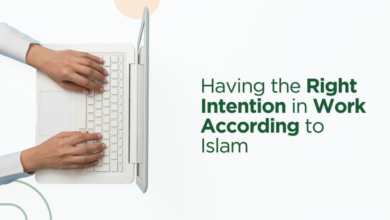- Blog

Game of Attention in Islamic Perspective
Attention has become a commodity in today’s world. There is intense competition among social media platforms and entertainment channels to capture every moment of human attention. Human focus is exploited and manipulated in what many academics refer to as the attention economy which is brought about by this continual pull on the mind. In Islam, human attention is valued as…
Read More » - Blog

What is Warren Buffett’s Investment Principles
The art of investing is the prudent management of opportunities and risks. True investing necessitates patience consistency and discipline but many novices are seduced by promises of quick profits. In Islam the Quran serves as a reminder of the value of maintaining equilibrium when handling money: “And those who, when they spend, are neither extravagant nor stingy but hold a…
Read More » - Blog

How to Adjust Take Profit and Risk Management in Investment
Investing is all about balancing the potential for profit with the possibility of loss. Many beginners forget that every investment carries risk because they are overly preoccupied with the potential profits. Moderation and balance in wealth management are highly valued in Islam. As stated in the Quran: “And those who, when they spend, are neither extravagant nor miserly, but hold…
Read More » - Blog

How to Analyze Whether a Company Is Worth Investing In
Every investor wants to be certain that their funds are going to a stable and expanding company. When a company turns out to be fragile or high-risk, no one wants to invest money in it and then regret it later. Moreover Islam stresses prudence when making financial decisions. The Quran says: “…And do not give the weak-minded your property, which…
Read More » - Blog

Having the Right Intention in Work According to Islam
In Islam, niyyah or the motivation behind our deeds is crucial. In the eyes of Allah ﷻ the primary factor determining the worth of any action is its purpose as the Prophet Muhammad ﷺ highlighted. This implies that if done for the correct reasons even something as commonplace as working to make a living can have significant spiritual significance. Work is…
Read More » - Blog

FIRE (Financial Independence, Retire Early) in Islamic Values
Gaining an Understanding of FIRE and It’s Significance Financial Independence and Early Retirement or FIRE is a movement that has gained popularity worldwide among professionals who want to break away from traditional work schedules. FIRE supporters strive to build up enough assets to cover living expenses by saving and investing heavily allowing them to retire well ahead of the conventional…
Read More » - Blog

The Importance of Having Multiple Sources of Income
Being isolated with one source of income is becoming more and more dangerous in the current economic environment. With only one paycheck maintaining financial security is more difficult due to inflation job instability economic shifts and unforeseen life events. As a result creating multiple revenue streams is now a necessity for financial survival and a means of achieving greater opportunities.…
Read More » - Blog

The Urgency of Skill Stacking in This Economy
One skill is insufficient in an economy that is being shaped by rapid automation digital transformation and changing job landscapes. The thing that once guaranteed a lifetime job is now a moving target. People who can adapt learn and apply knowledge across multiple domains are in high demand by employers. This strategy is referred to as skill stacking. In order…
Read More » - Blog

How to Avoid FOMO Spending
The psychological trigger known as FOMO or fear of missing out drives people to spend money in order to stay up with others trends or social expectations. Social media exacerbates this anxiety in the current digital era. People frequently make rash purchases in an attempt to feel included because they compare their lives to the carefully manicured highlight reels of…
Read More » - Islamic Economics

Pay Yourself First: The Urgency of Saving Before Spending
One idea that is particularly powerful and straightforward in the field of personal finance is “pay yourself first”. This strategy promotes putting money aside for savings as soon as you receive your paycheck—before you spend a dime. You save first and then live off of whats left over after expenses. It reverses the traditional budgeting approach and puts your financial…
Read More »

